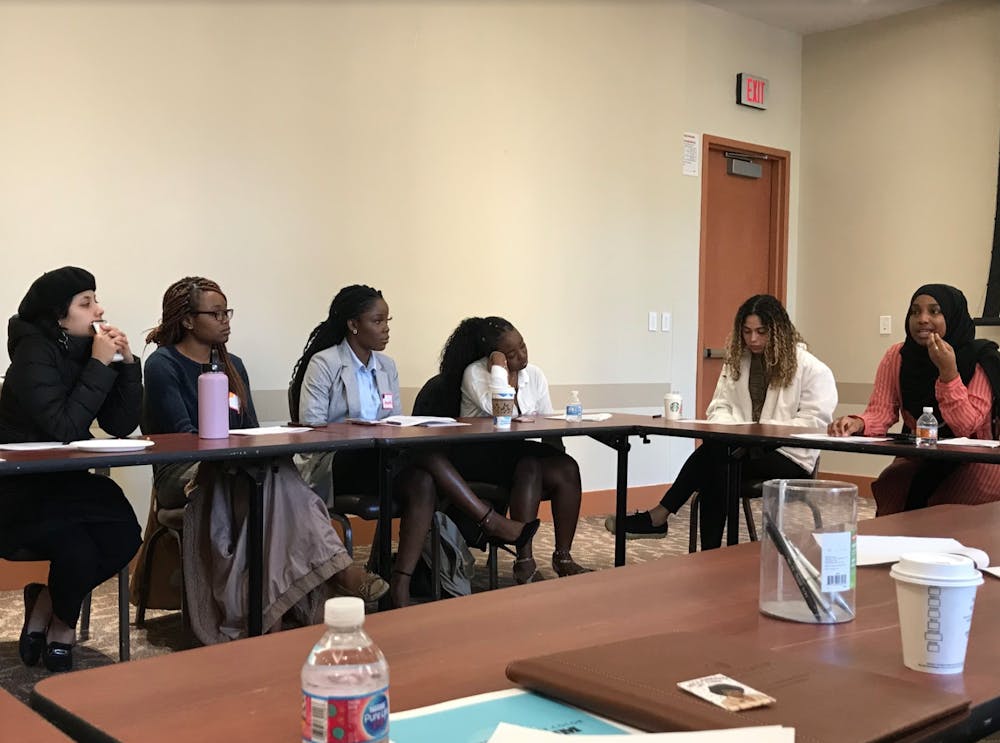The Female Leaders of Color (FLOC) and Men of Color Hopkins Alliance (MOCHA) held the Men and Women of Color Symposium last Saturday, March 7, in Charles Commons. The event was designed to provide an environment for people of color to share a professional networking space, while creating a conversation about issues concerning race and gender.
In an interview with The News-Letter, Jevon Campbell, a sophomore interning at the Office of Multicultural Affairs (OMA) and the publicity chair of MOCHA, shared the goals of the Alliance in creating the event. In prior years, the symposium solely targeted men of color. This is the first year that the organization has worked in collaboration with FLOC to redesign the event to include men, women and non-binary individuals.
“A lot of the symposium is focused on gender identities and empowering other people to come together and talk about the issues that need to be talked about and creating a healthy environment, so men and women can feel strong and more secure in their identities and they can come together and be able to exist better with each other,” Campbell said.
The two morning sessions, which focused on gender identity and self care, were each divided into two different concurrent sections for males and females.
The concurrent session on “Leading and Living as Women of Color” was held by Maryam Abdul-Kareem, the racial equity and justice advisor of the Justice for Muslims Collective. Abdul-Kareem laid out what she saw as society’s current expectations for women of color living in a white-dominant culture.
“It’s not that the traits of white culture are inherently evil,” she said. “It’s just when that becomes the norm and dominant and anything outside of that is considered wrong, that’s when it becomes crazy. There are a lot of different traits that come with white-dominant culture that’s not necessarily a part of all the various cultures and people that we mentioned here.”
For the session activity, Abdul-Kareem led a discussion, allowing the female attendees to reflect on times where they may have let white-dominant traits affect their behavior, encouraging them to make a commitment to pivot their future actions.
“One of the things is competition, and the pivot is collaboration. Particularly talking about women of color in office spaces, there is this ideal of ‘There can only be one’, and it sets up this idea that they can’t work together...We live in systems that create the idea that you can’t have sisterhood and success in the same place,” Abdul-Kareem said.
Sophomore Melanie Pillaca-Gutierrez, who is the director of internal communications for the Multicultural Leadership Council, pointed out that OMA has done a lot of work to create spaces on campus for people of color, but argued that there is still more work that can be done. OMA hosts numerous conferences each year, however, she said she believes there should be more action from the Hopkins administration.
“I really think upper admin can do more. As we learned today, it’s not just diversity and hiring people of color but including them in the decision making,” Pillaca-Gutierrez said.





